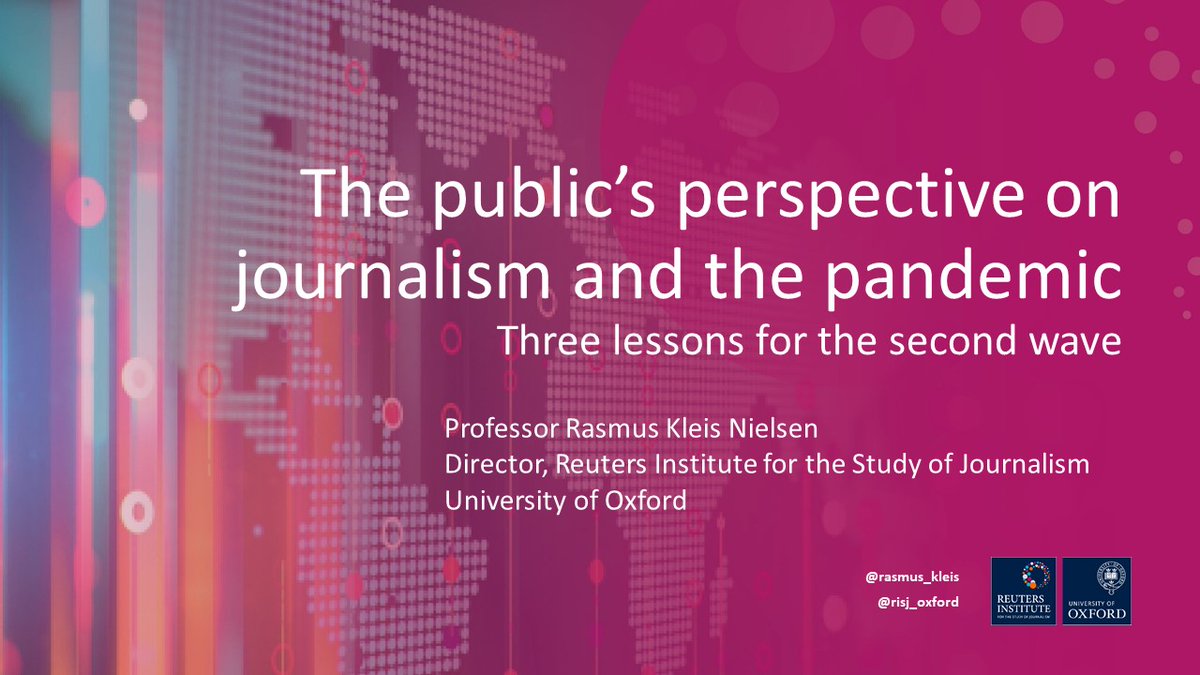
What is the public’s perspective on journalism and the pandemic?
Speaking at #MédiasenSeine based on our UK #COVID19 news and information project, with three lessons and a look to the future.
Underlying research here reutersinstitute.politics.ox.ac.uk/UK-COVID-19-ne… 1/5
Speaking at #MédiasenSeine based on our UK #COVID19 news and information project, with three lessons and a look to the future.
Underlying research here reutersinstitute.politics.ox.ac.uk/UK-COVID-19-ne… 1/5

First lesson - our UK data suggests most people are informed, cautious, and willing to take further measures, in part thanks to journalism 2/5 

Second lesson - in the UK, information inequality has grown throughout the crisis, around e.g. age, gender, class, as initial surge in news use dissipated. We don't have data on ethnicity but would expect similar pattern. 3/5 

Third lesson - a growing minority in the UK are “infodemically vulnerable”, because they don’t follow news and don’t trust news 4/5 

So overall, a mixed picture - we document news demonstrably help people navigate #covid19 crisis, and plays other important roles, but surge in use has dissipated, trust is declining, and much of the public is critical of how news media handle crisis. So choppy waters ahead. 5/5 

• • •
Missing some Tweet in this thread? You can try to
force a refresh











